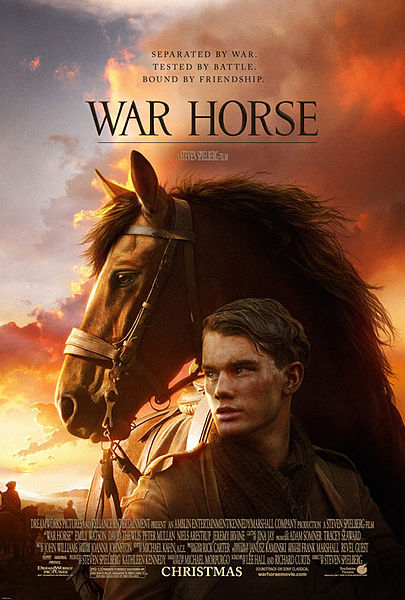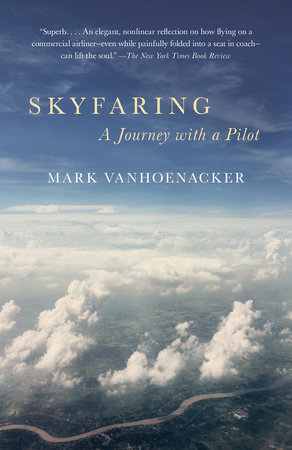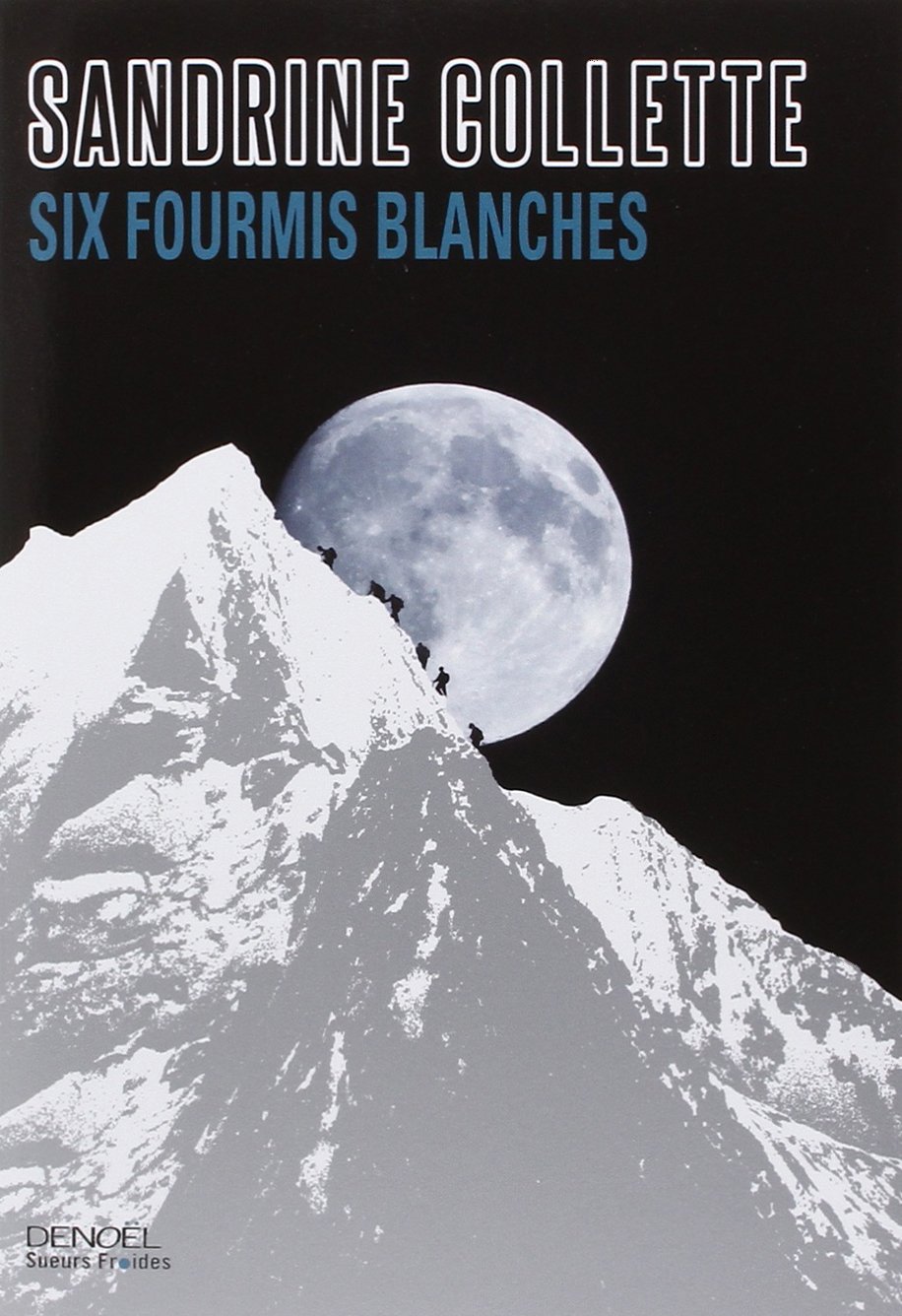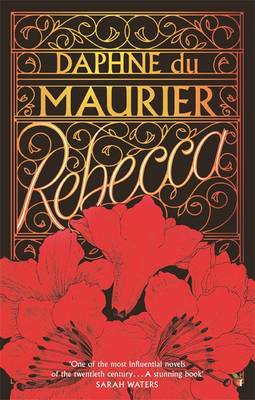Genre: War, Drama, History
Release date: 25 December 2011
Based on: War Horse, by Michael Morpurgo
Starring: Jeremy Irvine, Emily Watson, Peter Mullan, David Thewlis
Running time: 146 minutes

* ‘Maybe there are different ways to be brave. Did you know the French have the best carrier pigeons? And this could be the difference in the war, our messages getting through.’
‘I don't want to hear about the birds.’
‘They are released at the front and told to go home. This is all they know. But to get there they must fly over a war. Can you imagine such a thing? Here you are flying over so much pain and terror, and you know you can never look down. You have to look forward or you'll never get home. I ask you, what could be braver than that?’ *
‘I don't want to hear about the birds.’
‘They are released at the front and told to go home. This is all they know. But to get there they must fly over a war. Can you imagine such a thing? Here you are flying over so much pain and terror, and you know you can never look down. You have to look forward or you'll never get home. I ask you, what could be braver than that?’ *

War Horse, directed by Steven Spielberg and starring Jeremy Irvine, Emily Watson and David Thewlis was released in December 2011. Spectators might find the opening rather surprising for a historical, drama and war film. The story quietly starts around the 1900s in an English village in Devon. We discover a poor but calm rural community, having to work hard in order to earn a living. However, as suggested by the title of the film, peace is soon shattered. Heart-rending scenes introduce the horrors of World War I seen both from the English and German side, and show the effects war has on people’s lives. ‘Can you imagine flying over a war and you know you can never look down? You have to look forward or you’ll never get home’. This sentence illustrates perfectly the horse Joey’s behaviour. As the main character of the film, he leads us on the dangerous paths of war until peace returns, meeting various people involved in this gigantic fight. The music, composed by John Williams, emphasizes the crescendo in which the plot evolves until the final poignant scene which marks the end of the war.
In the first scenes already, spectators are enchanted by the peaceful music which leads them into the fascinating English landscape. A wide spectrum of emotions guides them during the entire film, from the serenity of the first scenes to the tension and grief of war that appear later. Grief is sometimes eased by amusing scenes or jokes and then accompanied by cheerful music. The emotional zenith is achieved in the last part, after Joey’s foolish escape in the No man’s land, when the magic melody of the flute and violins make every single feeling burst out in an eruption that will wet your cheeks and warm your heart.
The horses’ performances were absolutely incredible: running through a battle field, pulling cannons and carts… They acted like real war horses. Bobby Lovegren and his crew were responsible for these unusual actors. They chose horses capable of showing emotions and which had already been exposed to crowds and then decided which one would fit best to which sequence. Altogether, more than a hundred horses were used – fourteen different ones were selected for the main characters – and 1,100 hours of training, rehearsing and practising were needed. An incredible amount of work to accustom these shy animals to loud noises, but in the end, it was crowned with success.
War horse is definitely a film that takes up the challenge. It arouses deep emotions, from joy to sorrow. Although the novel it is based on was primarily addressed to a young audience, it is not recommended for small children, as the war scenes might be a little too violent for them – officially, it is rated PG-13. However, the balance between these and more emotional moments is perfect: everything seems extremely real but it is not yet too horrible to watch and we can easily feel the suffering of the people engaged in the battle.
Spielberg and his crew did an outstanding job. The score of John Williams as well as the cinematography of Janusz Kamiński are once again worthy of their respective names. The high-quality images as well as the overwhelming plot will keep your eyes on the screen regardless of the long running time. War Horse conveys a message of friendship, human values and perseverance where war is placed in the background. A particularly meaningful moment, in which an important message about humanity is transmitted, is in one of the ending scenes, when two enemy soldiers ignore war and cooperate in order to save a life. Despite war the story is in fact mainly based on the journey of both Joey and Albert, who become an emblem of true friendship.

Based on Michael Morpurgo’s 1982 children book War horse, the film shows a few differences with the original novel. These choices, probably necessary due to the transition from a written support to an audio-visual one, are wise and definitely add to the depth of the story. Morpurgo’s descriptions of Devon are illustrated by wonderful countryside landscapes: the Narracots’ stone farm, the little rural village, the lively horse market, the fields stretching as far as the eye can see; the spectator is cast into the English working-class society of the 1900s. Later as well the reality of the scenes is incredible. The horror of war is shown but in a subtle way, not only through blood and violence. In that sense the direction respects Morpurgo’s writing. It gives enough details to deliver his message but not too many, in order to prevent us from being put off for the rest of the story. Still, I must admit that many aspects are far more violent than the book, although Albert’s father brutal.
With Joey, we meet various people, most of them at war against their will, and all fighting for their survival in desolate and terrific places. Although the storyline of the novel is faithfully followed, a few moving episodes are added to the film and a few of do not appear or are not as detailed as in the original – I am thinking, for example, about the horse Zoey, who does not exist in the film. Again, the director had to make various choices to illustrate the progression of the troops from England to different parts of France. Selecting actors with French or German accents while speaking English was a real stroke of genius, as we are submerged in the reality of World War I and the clash of the different cultures involved. At the same time we can establish the connection with the real historical facts. As you have probably understood by now, I think that the transition from the novel to the film was absolutely brilliant.
_________________________
Film review by Florian, Marussia and Lara Emilie
Review of Michael Morpurgo's novel War horse





























Aucun commentaire:
Enregistrer un commentaire